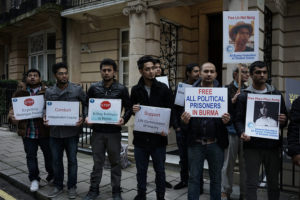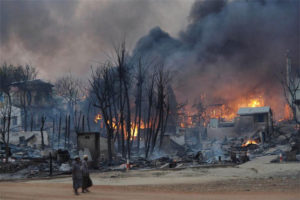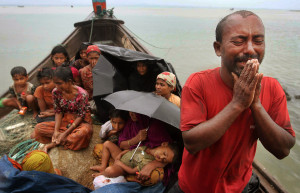By Vani Sathisan*
 In February, the Office of the United Nations High Commissioner for Human Rights (OHCHR) issued a report condemning the widespread human rights violations against the Rohingya population, a minority Muslim community, in Myanmar. The report states that a “calculated policy of terror” indicates the “very likely commission of crimes against humanity,” a view echoed by the UN’s Special Rapporteur for Human Rights in Myanmar, Yanghee Lee. Following the 34th Session of the Human Rights Council in Geneva in March, The UN Human Rights Council approved a resolution to “dispatch urgently” an international fact-finding mission to investigate alleged human rights violations by military and security forces against the Rohingya community. The Myanmar government, however, has rejected the UN probe for “inflaming” existent tensions, stating instead that the allegations are an “internal matter.”
In February, the Office of the United Nations High Commissioner for Human Rights (OHCHR) issued a report condemning the widespread human rights violations against the Rohingya population, a minority Muslim community, in Myanmar. The report states that a “calculated policy of terror” indicates the “very likely commission of crimes against humanity,” a view echoed by the UN’s Special Rapporteur for Human Rights in Myanmar, Yanghee Lee. Following the 34th Session of the Human Rights Council in Geneva in March, The UN Human Rights Council approved a resolution to “dispatch urgently” an international fact-finding mission to investigate alleged human rights violations by military and security forces against the Rohingya community. The Myanmar government, however, has rejected the UN probe for “inflaming” existent tensions, stating instead that the allegations are an “internal matter.”
Since deadly violence erupted in Myanmar’s Rakhine State in 2012, an estimated 140,000 people, mainly Rohingya and small groups of Rakhine Buddhists, have been internally displaced. Persecution by Rakhine Buddhists and the national government, which is controlled by the Bamar majority ethnic group, have forced even more Rohingya to flee Myanmar for neighboring countries, like Bangladesh. Myanmar’s lack of genuine commitment to the rule of law and to protecting the rights of the Rohingya further entrench exclusion, discrimination and marginalization, and violate a number of international human rights laws and norms. Continue reading


